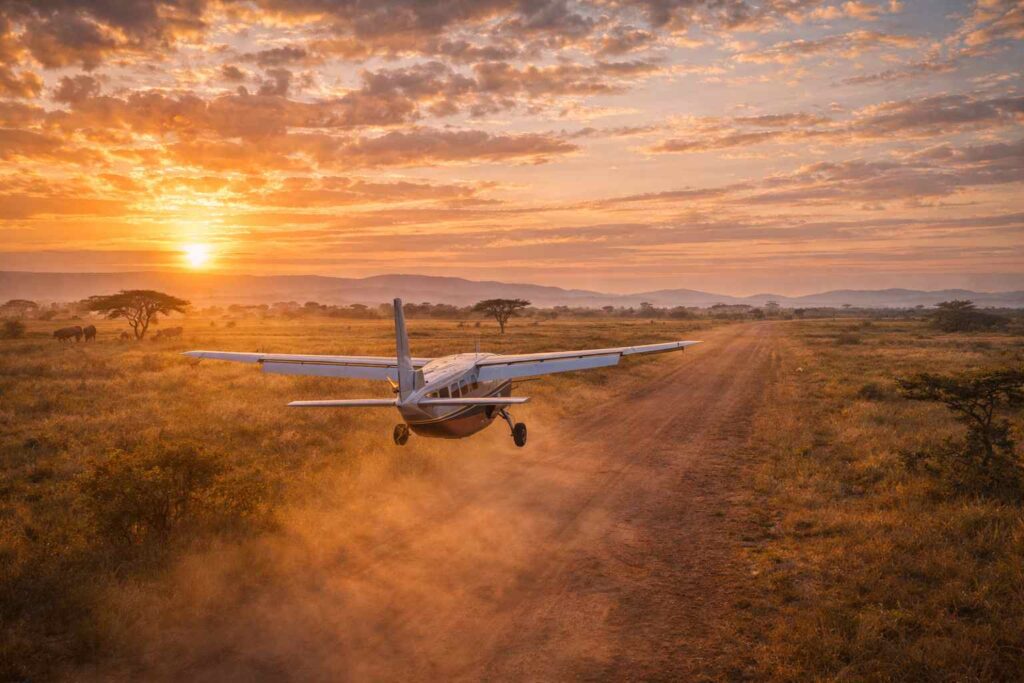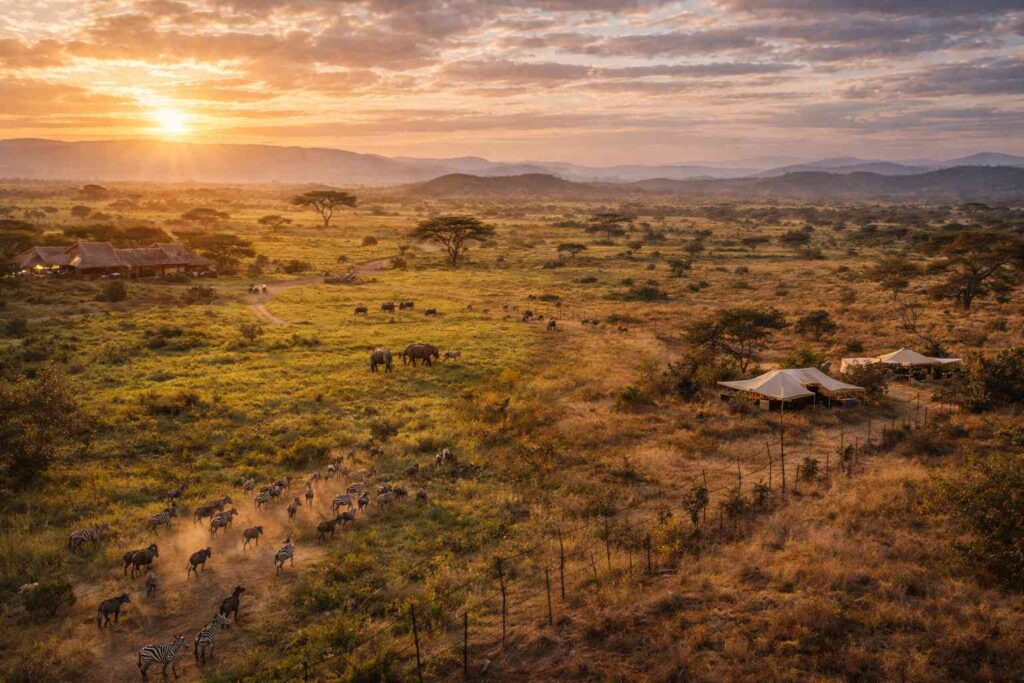A safari is one of the most exciting ways to connect with nature—but being surrounded by wild animals also demands caution and respect. Whether you’re watching lions from a game vehicle, walking through the bush, or sleeping in an unfenced tented camp, understanding how to stay safe around wildlife is essential.
This guide covers everything you need to know about animal safety on safari: how to behave, what to avoid, warning signs to watch for, and why your guide’s instructions can make the difference between an incredible memory and a serious risk.
Why wildlife safety is no joke
African wildlife is magnificent, but it’s also unpredictable and powerful. Accidents are rare, but when they happen, it’s usually because someone ignored basic safety rules. Animals can act defensively when surprised, approached too closely, or provoked—even unintentionally.
Unlike zoos, safari settings are not controlled environments. You’re in the animals’ territory, and safety depends on your awareness, preparation, and behavior.
How to behave during a wildlife sighting
Stay calm and quiet
Even if you’re excited, keep your voice low and your movements minimal. Sudden gestures or loud noises can agitate animals or interrupt their natural behavior.
Never stand or lean out of the vehicle
From a predator’s point of view, the vehicle appears as a single, non-threatening unit. Breaking that silhouette—by standing, waving, or sticking your arms out—can trigger an aggressive response, especially from predators or elephants.
Keep your distance
Let your guide determine how close is safe. Getting too close can stress animals, provoke defensive behavior, or even trigger a charge.
Avoid flash photography
Bright flashes can startle wildlife, especially at night. Most guides will ask you to turn it off—and for good reason.
Staying safe in unfenced camps and lodges
Many safari camps in Africa are unfenced to allow wildlife to roam freely through the area. This offers a unique experience but also requires heightened awareness.
Always ask for an escort at night
Never walk alone after dark, even for short distances. Most camps offer escorts to walk you safely from your tent to the dining area or main lodge.
Keep tents zipped and food stored
Don’t leave food, snacks, or even toiletries out in the open. These smells attract baboons, monkeys, and sometimes larger mammals like hyenas.
Be aware of your surroundings
Listen for animal sounds—such as warning calls from birds or rustling in the bushes. Don’t ignore unusual noises outside your tent, and never step outside without checking first.
Recognizing animal warning signs
Wild animals often give clear signals before acting aggressively. Learning to read these cues can help avoid dangerous situations.
- Elephants: Flapping ears, trunk curling, mock charges. Real charges usually come without warning.
- Lions: Staring directly, growling, tail flicking. If they crouch low—they’re preparing to pounce.
- Buffalo: Holding their head low, intense staring. They are notoriously unpredictable and dangerous.
- Hippos: Yawning (actually a threat display), grunting loudly, or moving toward you in water or on land.
If you notice any of these behaviors, remain still and calm. Do not run or shout—alert your guide immediately.
The role of your guide in keeping you safe
Safari guides are highly trained professionals with years of experience in animal behavior, terrain navigation, and emergency response. Trusting their judgment is essential.
Always follow instructions
Even if it feels safe to move closer or talk louder, don’t. Guides position the vehicle and control the encounter to minimize risk.
Stay alert
Your guide is constantly assessing the situation—but guests should remain observant, too. Don’t assume you’re safe just because someone else is paying attention.
Walking safaris: even more reason to stay sharp
Walking safaris bring you closer to wildlife than any other experience—but they also come with the greatest responsibility.
- Walk in single file so the group looks like one moving shape.
- Never run—even if you’re scared. Predators may instinctively chase fleeing prey.
- Follow hand signals; speaking aloud is discouraged to avoid alerting animals.
- Respect the wind direction to avoid being scented.
Most importantly, if your guide says “stop,” freeze immediately. Movement can escalate a tense encounter.
Wildlife safety and children on safari
Children can go on safari—but only with extra care. Choose lodges with child-friendly programs and ensure that kids understand the rules.
- No loud games or running in camp.
- Children must remain seated and supervised during game drives.
- Some camps have minimum age limits for safety reasons.
Final thoughts: safety equals respect
Staying safe around wildlife isn’t just about self-protection—it’s about respecting the natural order of the wild. When guests behave responsibly, animals are less likely to feel threatened, and the experience becomes more rewarding for everyone.
By listening to your guide, keeping your distance, and observing quietly, you not only reduce risks—you become a better guest of Africa’s wild places.
FAQs: safari animal safety
No—incidents are extremely rare. As long as you remain seated and quiet, animals tend to ignore the vehicle.
Only if done alone. Always request a guide or ranger escort, and never leave your tent without permission after dark.
Surprisingly, it’s not lions—it’s hippos and buffalo, followed by elephants. These animals can be extremely territorial and unpredictable.
Stay calm, avoid eye contact, and don’t run. Freeze if instructed, and follow your guide’s commands.
Yes, but with caution. Some lodges have age restrictions, and parents must ensure children follow all safety rules.






